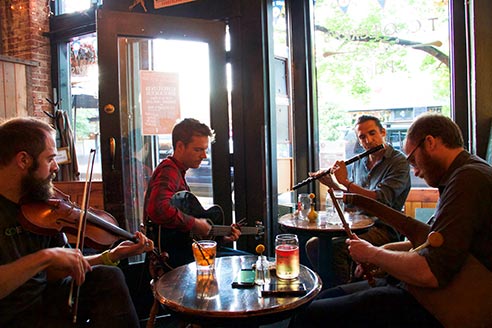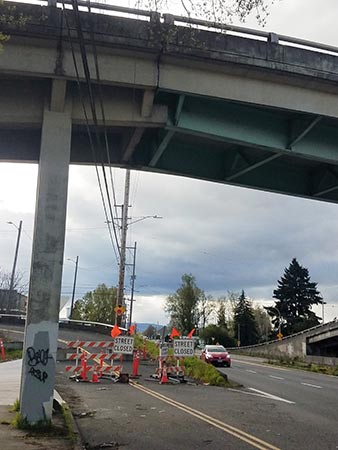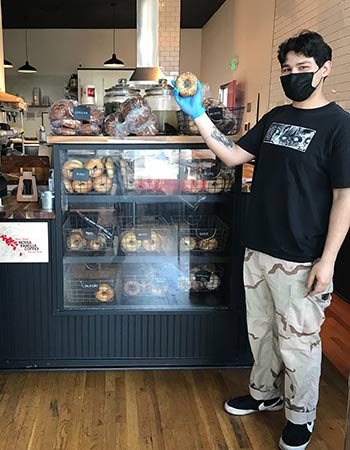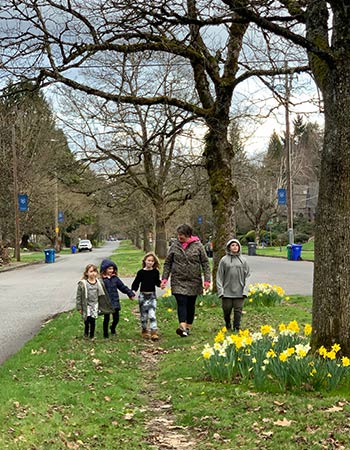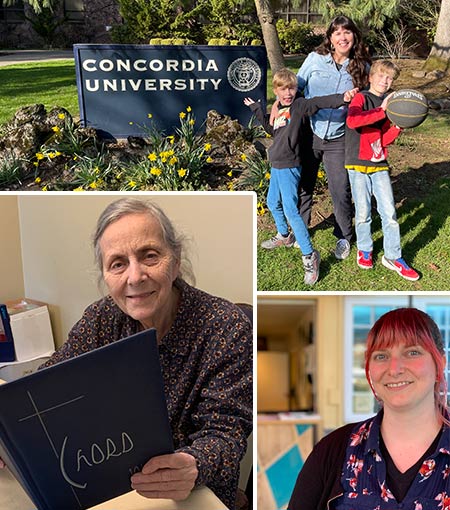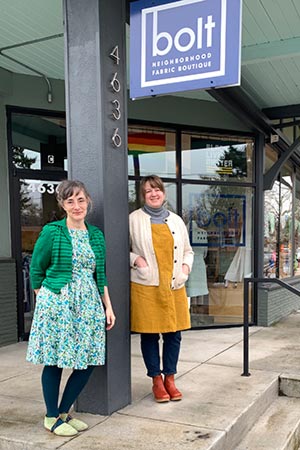By Jon Dickman | CNA Media Team
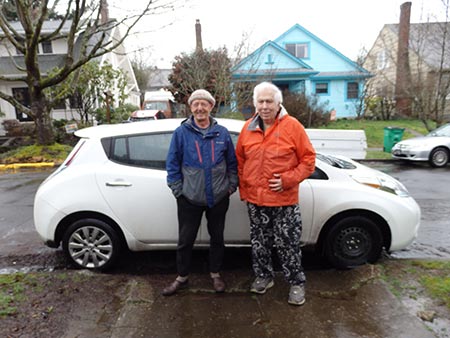
An appreciation of authentic human connection and a love of helping others inspired retired chiropractor and Cully resident Abe Cohen five years ago to volunteer with Northeast Village PDX, 5830 NE Alameda St., serving Concordia and other neighborhoods in central northeast Portland.
For the past five years, the group– volunteer-based, member-led and self-governing–has enabled older people to remain in their homes and enjoy a meaningful quality of life. Services may include transportation, light home maintenance, tech support, social visits, phone check-ins, tax help, yardwork and neighborhood walks. Membership fees help pay for village operating costs.
A driver for the village, Cohen cherishes the one-on-one time he spends when taking a member to a doctor, dentist, or physical therapy appointment or to go shopping, on a park walk or to a hair salon.
“It’s like when I was a chiropractor,” he said. “It’s a meeting of different people from different backgrounds, different personalities, different walks of life. It’s very stimulating.”
John Bear – a writer, former Jeopardy contestant and one of Cohen’s regular passengers – said Cohen was always cheerful. “Abe is one of those people who would rather be 15 minutes early than one minute late. So, I can always count on him for pickups and rides.”
Although the pandemic has limited socializing, some village members use videoconferences for book and movie discussions and arts and crafts. Cooking groups also conduct their meetings via videoconference, as well as speakers who share information of interest to older adults. More in-person cultural, recreational, and social activities are slated to start up again soon.
In February, Northeast Village PDX joined more than 280 similar villages across the country to celebrate the movement’s 20th anniversary. The U.S. House of Representatives marked Feb. 15 as National Village Day.
The milestone was also commemorated by Oregon Sen. Ron Wyden, who issued a statement into the Congressional Record of the United States Senate to recognize the accomplishments and contributions of the national movement.
“I see a lot of gratitude,” Cohen said. “It’s nice to do something for people who appreciate what you’re doing – not for ego gratification – but because you’re giving them something.”
Northeast Village PDX holds videoconference information sessions for prospective members and volunteers at 2 p.m. on the second Tuesday of every month. Register on the calendar at NEVillagePDX.org, or call 503.895.2750 for more information. Also, you can check out their introductory video on their Northeast Village PDX YouTube channel.
Jon Dickman, enthusiastic volunteer with Portland FolkMusic Society and lover of classical jazz vocals, leads a memoir/ show-and-tell group for NE Village PDX called “It’s All About Us.”
